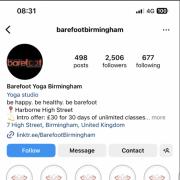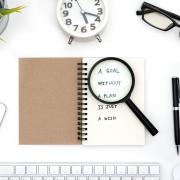
As the day my German exchange was due to arrive got closer and closer, I began to get more and more apprehensive. Not because I thought something would go wrong; the reason I was scared was that every time I mentioned a German exchange, someone would share a titbit of information that caused me to see the coming opportunity in a new light.
'You know, I work with a German - he doesn't talk much’
‘Apparently, German girls are gossipy. That's just what I heard.’
‘You’re going to have to be so organised - you know the Germans are known for their efficiency.’
It got so bad that I spent 15 minutes pacing outside the station, too nervous to go in. However, I was pleasantly surprised. Sophia is genuinely one of the nicest people I have ever met. She was kind, funny, friendly and always up for trying new things. However, my collection of stereotypes could have limited what was one of the most amazing experiences of my life.
We all have stereotypes - even the best of us. Your first impressions of people are always an amalgamation of all the people who have gone before - your best friend from primary school, the aunt that always treated you like a daughter, your favourite teacher from school - they all contribute to how you judge others.
That's okay. We all need a starting point. It's when you start to take on society's exaggerated caricatures as gospel that it starts becoming a problem.
My mum's friend is a junior surveyor of African heritage, and she felt stereotyped as soon as she entered the workspace. She said, "Someone asked me if I was the new secretary - I guess they made an assumption because I was young, female and African."
Do you see? Stereotypes can lead to prejudice, which is a ‘preconceived opinion that is not based on reason or actual experience.’ You know, things like ‘Asians are good at Maths’ and ‘African Americans play basketball’. Not only can it pressure people into trying to become someone they aren’t, but it can also lead people to view people in a certain way and act accordingly.
Take police brutality in the US. An analysis of 2015 police killings by the Guardian found that although racial minorities make up only 37.4 percent of the population, 62.7 percent of unarmed people killed by police are non-white. Obviously, there are a lot of external factors that affect those statistics: economic stability and location both play a part. However, in 2015 researcher Cody Ross found, “There is no relationship between county-level racial bias in police shootings and crime rates (even race-specific crime rates), meaning that the racial bias observed in police shootings in this data set is not explainable as a response to local-level crime rates.’ This points to individual bias, born of stereotypes portrayed in the media and pumped into our heads by the people around us.
So, how do we combat this? Well, the media is already responding. Films like Black Panther and Crazy Rich Asians are challenging stereotypes of ethnic minorities and this year's Oscar nominees are the most diverse yet. However, the change must start with us. So next time you hear someone say, ‘She cooks - obviously’, challenge them. Because only by asking questions can we really get to know each other.



























